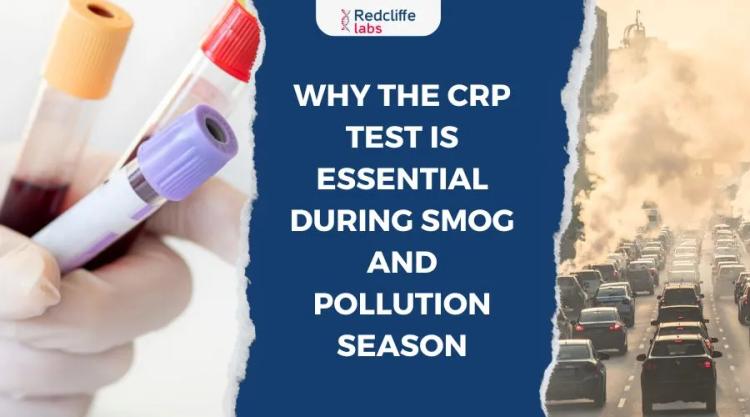Troponin Test Normal Range: What do Troponin Test Results Mean?

Medically Reviewed By
Dr. Geetanjali Gupta
Written By Kirti Saxena
on Feb 19, 2025
Last Edit Made By Kirti Saxena
on Jul 19, 2025

The heart is a muscle that pumps blood throughout the body. It contains a protein called troponin. When the heart muscle is damaged, troponin is released into the blood. Doctors may recommend the Troponin test to diagnose heart attacks and other heart problems.
Let's understand in this article what a Troponin Test is, what the test detects, the Troponin test's normal range, and more.
What is a Troponin Test?
A Troponin test measures troponin levels, a protein found in heart muscle cells in your blood. Under normal conditions, troponin remains within these cells but leaks into the bloodstream when the heart muscle is damaged—such as during a heart attack. High troponin T levels are a key indicator of heart muscle injury.
This test is commonly used in emergencies to diagnose or rule out a heart attack. Troponin levels usually rise within 3 to 12 hours after heart damage occurs, peak around 24 hours, and can remain high for several days. The Troponin test is highly sensitive and can detect even minor increases in troponin, which means it detects heart issues early.
When is the Troponin Test Recommended?
Your doctor may recommend the Troponin test if you notice any signs of heart attack or other heart injury. The test measures the levels of troponin protein in the blood, which are released when the heart muscle is damaged. High Troponin levels indicate heart muscle injury. The Troponin test is used, too.
-
Confirm if a person has a heart attack or recently had one—This is one of the most common reasons for troponin testing. The test is recommended in the hospital's emergency room, along with other heart tests, such as an EKG.
-
Evaluating chest pain- Determining if chest pain is related to heart muscle injury.
-
Diagnose and monitor angina- The unstable angina can happen anytime, even during rest. It may lead to a medical emergency like a heart attack.
-
Assessing heart injury after surgery—The test helps to check for heart muscle damage following surgeries or procedures that may affect the heart.
Also Read: https://redcliffelabs.com/myhealth/heart/common-causes-of-elevated-troponin-levels-know-the-details/
Why Do I Need a Troponin Test?
Your doctor may suggest you take a troponin test to check your heart health condition or detect the risk of a heart attack. The symptoms may start slowly or suddenly. They might be mild or intense and can come and go for several hours. These include-
-
Trouble breathing
-
Nausea and Vomiting
-
Feeling unusually tired for no reason, sometimes for days
-
Dizziness and light-headedness
-
Sweating a lot for no reason
-
Rapid or irregular heartbeat (Arrhythmia)
-
Chest pain, heaviness
-
Pain or discomfort
These symptoms are commonly associated with heart attack, and a troponin test helps assess the heart muscle damage.
What is the Normal Troponin Level Range?
The Troponin level's normal range is-
|
Troponin Level (ng/mL) |
Interpretation |
|
0–0.04 |
Considered normal, it suggests no significant heart muscle damage. |
|
0.04–0.40 |
It may indicate heart damage; further evaluation is necessary to determine the cause. |
|
Above 0.40 |
Suggestive of a probable heart attack; immediate medical attention is required. |
If your Troponin levels are high
High troponin levels indicate a high risk of heart-related conditions. Troponin levels can be high for 3 to 6 hours after the heart has been damaged and can remain high for 10 to 14 days.
What if your Troponin Levels are Low or normal
Low troponin levels indicate heart muscle damage. However, even slight increases in troponin can suggest some degree of heart injury.
Troponin levels are within the normal range in a healthy person. If you experience chest pain, but your troponin levels are still low or normal 12 hours after the pain started, the possibility of a heart attack is low.
What Level of Troponin Indicates a Heart Attack?
Very high troponin levels, typically above 0.40 ng/mL, indicate a heart attack. The troponin levels usually rise within 3 to 12 hours after a heart attack and can remain high for several days.
What Other Diseases or Conditions Cause High Troponin Levels?
The other heart conditions that can contribute to high troponin levels include-
-
Myocarditis (inflammation of the heart muscle)
-
Heart failure
-
Pulmonary embolism (blood clot in the lungs)
-
Chronic kidney disease
-
Cardiomyopathy
-
Stable angina
Other possible causes of high troponin levels include:
-
intense exercise
-
stroke
-
diabetes
-
kidney disease
-
burns
-
medications, like metoprolol (Toprol XL, Lopressor)
-
hypothyroidism,
-
intestinal bleeding
-
pulmonary embolism
-
an extensive infection, like sepsis
How to Treat High Troponin Levels?
High troponin levels indicate damage to the heart muscle and are commonly associated with conditions such as heart attacks, heart failure, or myocarditis. The treatment focuses on managing the underlying cause of the high troponin levels.
-
Heart Attack- (Myocardial Infarction)- If a heart attack is confirmed, the doctor may prescribe medications to dissolve blood clots, surgery for open block arteries (such as angioplasty), or surgery like coronary artery bypass grafting.
-
Heart Failure- Doctors may prescribe medications to improve heart function, reduce fluid buildup, and control blood pressure.
-
Myocarditis- The treatment focuses on managing symptoms and may include medications to lower inflammation and improve heart function.
-
Medications- Depending on the condition, prescriptions may include blood thinners, beta-blockers, ACE inhibitors, or statins to manage cholesterol levels.
-
Lifestyle Modifications—Follow a heart-healthy lifestyle. Eat a balanced diet, exercise regularly, quit smoking, and manage stress.
-
Cardiac Rehabilitation- A structured program combining education, exercise, and counseling to support recovery and prevent future heart issues.
How Can You Prevent High Troponin Levels?
To prevent high troponin levels and the risk of heart-related issues, follow these tips-
-
Healthy Diet—Eat a heart-healthy diet rich in fruits, vegetables, and whole grains.
-
Exercise—To reduce the risk of heart-related conditions, Work out for at least 45 minutes daily and follow an active lifestyle routine.
-
Avoiding Smoking - Avoid tobacco and alcohol to prevent the risk of heart-related issues.
-
Manage your stress levels - Practice stress-reducing techniques like yoga and meditation.
-
Regular Check-ups: Monitor blood pressure and cholesterol. Take blood tests, such as the Troponin and the HsCRP tests, which are affordable and guaranteed 100% report correctness at Redcliffe Labs.
These lifestyle choices can help lower your risk of heart disease and associated increases in troponin levels.
The Final Thoughts
Troponin is a protein released in the blood when you experience a heart attack. High troponin levels may indicate other heart-related conditions.
So, if you notice any symptoms related to chest pain or suspect you may have a heart attack, call 108 for local emergency services.
Heart attacks and other heart-related conditions can be deadly. To reduce the risk of heart attacks, take preventive actions early and get regular health checkups. You can take the Troponin Test from Redcliffe Labs to get the best diagnostic services from your doorstep. Early interventions can lead to better heart health management.
FAQ’s
What is considered a high troponin level?
A troponin level of 0.40 ng/mL or higher is considered high, and it may indicate a heart attack.
Is it possible that a person with a normal troponin level has chest pain?
Yes, a person may have normal troponin levels with chest pain. This means that the heart muscle is not damaged, and the condition is not a heart attack. Please consult a doctor to determine the cause of the chest pain, as it might be due to other factors.
Can the Troponin level go back to normal?
Yes, a Troponin level can go back to normal after some time, normally within 4 to 10 days after a heart attack or cardiac injury.
What does it mean when your troponin level is high?
A high troponin level could indicate heart muscle damage, which can be a sign of a heart attack. However, high troponin levels might also be due to other conditions, such as intense exercise, heart failure, pulmonary embolism, or heart muscle inflammation (myocarditis).
What is the treatment for high troponin?
The treatment of high troponin levels depends on the underlying cause. If it is due to a heart attack, doctors may prescribe medications like clot-dissolving drugs and blood thinners. In severe cases, surgeries like coronary angioplasty, bypass surgery, or stent placement might be required.



